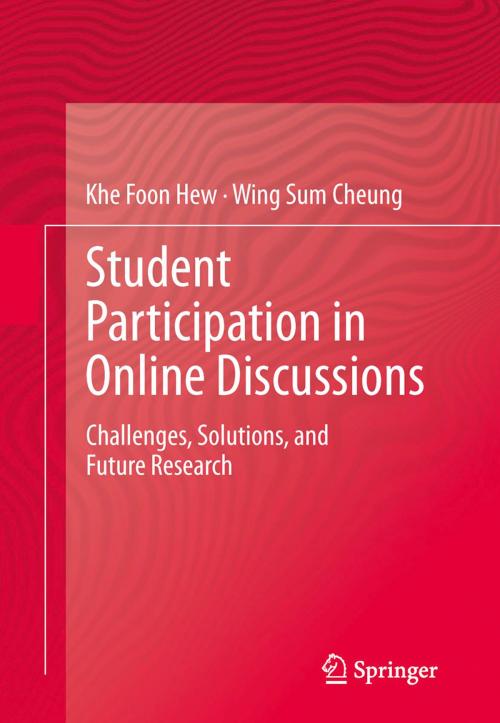Student Participation in Online Discussions
Challenges, Solutions, and Future Research
Nonfiction, Computers, Advanced Computing, Programming, User Interfaces, Reference & Language, Education & Teaching, Teaching, Computers & Technology| Author: | Wing Sum Cheung, Khe Foon Hew | ISBN: | 9781461423706 |
| Publisher: | Springer New York | Publication: | June 13, 2012 |
| Imprint: | Springer | Language: | English |
| Author: | Wing Sum Cheung, Khe Foon Hew |
| ISBN: | 9781461423706 |
| Publisher: | Springer New York |
| Publication: | June 13, 2012 |
| Imprint: | Springer |
| Language: | English |
The increasingly prevalent use of online- or blended-learning in schools universities has resulted in asynchronous online discussion forum becoming an increasingly common means to facilitate dialogue between instructors and students, as well as students and students beyond the boundaries of their physical classrooms. This proposed academic book contributes to the literature on asynchronous online discussions in the following three main ways: First, it reviews previous research studies in order to identify the factors leading to limited student contribution. Limited student contribution is defined as students making few or no postings, students exhibiting surface-level thinking or students demonstrating low-level knowledge construction in online discussions. It then identifies the various empirically-based guidelines to address the factors. Second, three potential guideline dilemmas that educators may encounter: (a) use of grades, (b) use of number of posting guideline, and (c) instructor-facilitation are introduced. These are guidelines where previous empirical research shows mixed results when they are implemented. Acknowledging the dilemmas is essential for educators and researchers to make informed decisions about the discussion guidelines they are considering implementing. Third, nine exploratory case studies related to student-facilitation and audio-based discussion are reported on and examined. Using students as facilitators may be an alternative solution to educators who wish to avoid the instructor-facilitation guideline dilemma. Using audio discussion would be useful for participants with poor typing skills or those who prefer talking to typing. The proposed book is distinctive in comparison to current competitor titles because all the findings and guidelines are empirically-based. Furthermore, the nine expanded case studies provided specifically address the issue of student/peer facilitation and audio-based discussion. Student/peer facilitation and audio discussion are two areas that hitherto received comparatively lesser attention compared to instructor facilitation and text-based discussion.
The increasingly prevalent use of online- or blended-learning in schools universities has resulted in asynchronous online discussion forum becoming an increasingly common means to facilitate dialogue between instructors and students, as well as students and students beyond the boundaries of their physical classrooms. This proposed academic book contributes to the literature on asynchronous online discussions in the following three main ways: First, it reviews previous research studies in order to identify the factors leading to limited student contribution. Limited student contribution is defined as students making few or no postings, students exhibiting surface-level thinking or students demonstrating low-level knowledge construction in online discussions. It then identifies the various empirically-based guidelines to address the factors. Second, three potential guideline dilemmas that educators may encounter: (a) use of grades, (b) use of number of posting guideline, and (c) instructor-facilitation are introduced. These are guidelines where previous empirical research shows mixed results when they are implemented. Acknowledging the dilemmas is essential for educators and researchers to make informed decisions about the discussion guidelines they are considering implementing. Third, nine exploratory case studies related to student-facilitation and audio-based discussion are reported on and examined. Using students as facilitators may be an alternative solution to educators who wish to avoid the instructor-facilitation guideline dilemma. Using audio discussion would be useful for participants with poor typing skills or those who prefer talking to typing. The proposed book is distinctive in comparison to current competitor titles because all the findings and guidelines are empirically-based. Furthermore, the nine expanded case studies provided specifically address the issue of student/peer facilitation and audio-based discussion. Student/peer facilitation and audio discussion are two areas that hitherto received comparatively lesser attention compared to instructor facilitation and text-based discussion.















